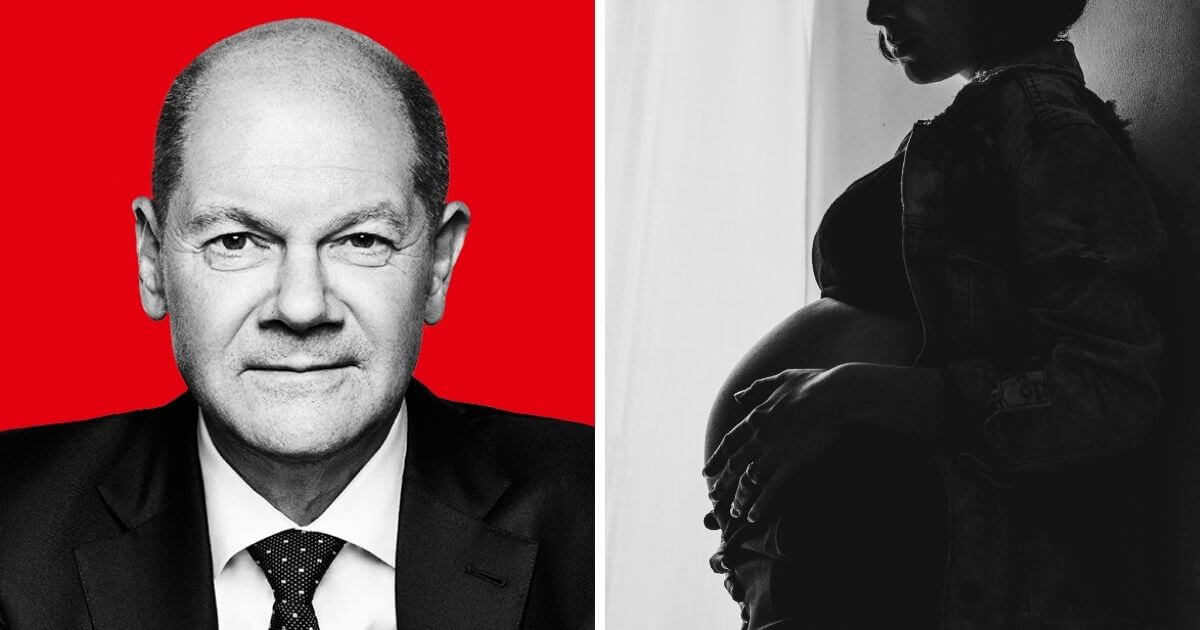The German Government has made plans to radically alter the abortion law in Germany by allowing commercial advertising on abortion and making abortion funded under public health insurance.
The coalition Government under Olaf Scholz in Germany has faced opposition over his planned changes to the abortion law before he has even taken office.
Hubert Hüppe, an MP for Angela Merkel’s CDU party, told Bild newspaper: “We have an advertising ban on tobacco, and warnings on packets saying smoking can be fatal”.
“An abortion is definitely fatal for the child. Who could understand that abortion is fundamentally wrong if advertising for it is legalised?”
The German law currently permits doctors and abortion clinics to list the abortion procedures they offer but forbids advertising for abortion “for a pecuniary benefit or in a grossly offensive manner”. In other words, abortion cannot be advertised for financial gain.
Prosecution for those who cause a “pavement nuisance”
As well as ensuring that abortion is paid for under public health insurance and making commercial advertising for abortion legal, the new German Chancellor also plans to make abortion a standard aspect of basic medical training, move the mandatory abortion counselling online and, according to the Telegraph, make it possible to prosecute those who cause a “pavement nuisance” by holding demonstrations outside abortion facilities.
It is not yet clear what this proposal entails but in the UK, a number of attempts have been made to make it illegal to offer help outside abortion clinics.
Abortion for profit
The German law is clear that it does not want people advertising abortion in order to make a profit. In the UK, however, the commercialisation of abortion has been underway for many years.
A 2011 report noted the correlation between abortion referrals to MSI Reproductive Choices and the British Pregnancy Advisory Service (BPAS) and those companies’ investment in public advertising campaigns.
Polling on abortion advertising in the UK shows that 65% of people in Britain believe that advertising for abortion on mainstream broadcasters such as the BBC and ITV would “dramatically increase the number of abortions in [the UK]”.
Right To Life UK spokesperson, Catherine Robinson, said: “The current German law preventing advertising of abortion should be upheld. It is obvious that advertising for something generally increases the uptake of the product. Furthermore, the majority of the British public recognise that advertising of abortion will likely increase the number of abortions”.
“This controversy over the advertising of abortions also emphasises that abortion is not real healthcare at all because pregnancy is not a disease. When someone is actually unwell, they approach a doctor who is able to offer them the best course of treatment. We do not typically advertise these treatments, but we trust that the doctor knows how best to treat a disease. Advertising for an abortion, however, indicates that it is a product that certain people want to sell. Once there is a revenue motive for abortion as there is the UK, any semblance of impartiality when it comes to abortion counselling simply cannot be taken seriously”.












